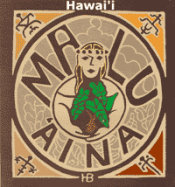Important book on Resistance to Empire
Blasphemy or Blessed Insight?
Richard A. Horsley’s
Jesus and Empire: The Kingdom of God and the New Word Disorder, Minneapolis: Fortress Press, 2003. (At www.amazon.com can purchase for $7.08 new)
If Jesus were here today would he be fighting the “empire”?
Quotes from Desmond Tutu, Rosemary Radford Ruether and Walter Wink seem to answer, “Yes.”
The paperback edition is 149 pages long (not including the notes). See for yourself if you agree with Horsley’s assertions:
1. Scholars have presented a “depoliticized” Jesus. (P. 6ff)
2. Scholars have presented a “depoliticized” Judea and Galilee. (P. 9ff)
3. Scholars have presented a “depoliticized” Roman Empire. (P. 11ff)
4. “There is no way we can understand such practices as crucifixion, . . . other than as purposeful attempts to terrorize subjected people.” (P. 27)
5. “Regional differences between Galilee and Judea, particularly its capital, Jerusalem, rooted in their divergent histories compounded the primary division between rulers and ruled.” (P. 59)
6. “Mark and Q should thus, be understood as intracommunity articulations of a no-longer-so-hidden mobilization of Galilean and other peasants into a village-based movement.” (P. 71)
7. “Jesus of Nazareth belongs in the same context with and stands shoulder to shoulder with these other leaders of movements among the Judean and Galilean people, and pursues the same general agenda in parallel paths: independence from Roman imperial rule so that the people can again be empowered to renew their traditional way of life under the rule of God.” (P. 104)
8. “Renewal of the Mosaic covenant formed the very core of Jesus’ renewal of the people in their village communities.” (P. 111)
9. “In the context of covenant renewal, ‘love’ refers not to a feeling or an attitude, but to concrete economic practices in village community, such as canceling debts and generous mutual sharing of resources.” (P. 127)
10. “What became the orthodox forms of ‘Christianity,’ however resulted from compromise and accommodation to the imperial order.” (P. 135)
It is highly recommended that this book be studied together with a few others.
The above summary is by Rev. Ronald Fujiyoshi of Hilo
